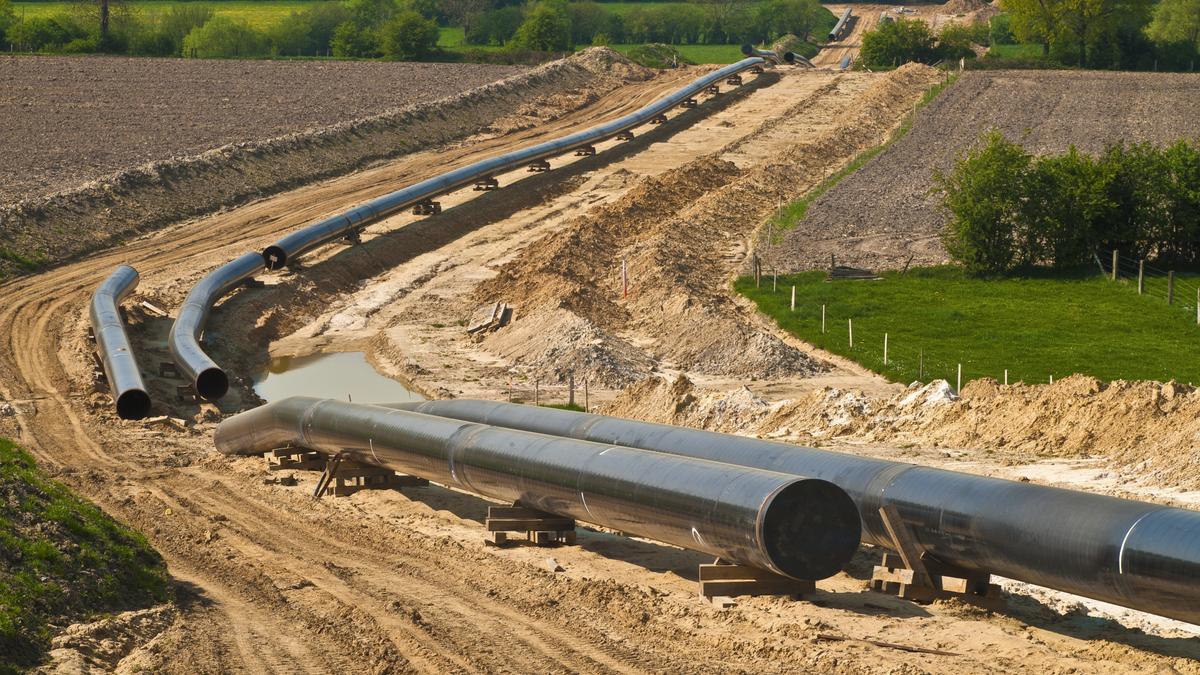The Mountain Valley Pipeline (MVP) is 0-4 on first down conversions. The red zone is nowhere in sight, and the clock is running out. Why are people still betting on this team?
MVP is a monstrous, 303-mile fracked-gas pipeline planned to run through the Blue Ridge and Appalachian regions of Virginia and West Virginia, all the way to North Carolina. It would boost the bottom line of fossil fuel companies at the expense of regional clean water and endangered species. It would require up to four new compressor stations, facilities that keep the gas pressurized as it travels. The pipeline would also cut through about five miles of the Jefferson National Forest and bisect the iconic Appalachian Trail and Blue Ridge Parkway.
MVP was thrust into the national spotlight in August, when Sen. Joe Manchin, D-West Virginia, Senate Majority Leader Chuck Schumer, D-New York, and then-House Speaker Nancy Pelosi, D-California, made a closed-door agreement to advance Manchin’s priorities in exchange for a vote on the Inflation Reduction Act. Not only would this dirty deal greenlight MVP, the carbon equivalent of 26 new coal plants, it would also limit judicial oversight and gut bedrock federal environmental law. Before Manchin’s proposed legislation even hit the floor in September, he was forced to pull the language. He simply didn’t have the votes, so his first legislative pass was incomplete.
Manchin returned this December for another try – this time targeting the National Defense Authorization Act (NDAA). However, House and Senate progressives continued their vocal opposition and, again, the language was stripped before it hit the floor for a vote.
Next, Schumer agreed to tack on a version of Manchin’s demands as an amendment to the NDAA. When brought to a vote in the Senate, Manchin still came up short. He made one final Hail Mary attempt, as he tried to push the MVP into another must-pass budget bill right before Christmas. That too failed, and 2022 closed with no gain for the MVP.
A fossil-fuel fan might say that MVP is due for a comeback. But history has shown that the Mountain Valley Pipeline cannot make good on its promises. Since construction began, MVP has racked up 300-plus violations of existing permits across West Virginia and Virginia. These violations have had devastating impacts on local ecosystems and people who live along the route. The company continues to peddle to its investors the false narrative that MVP is almost finished, while outside reports show the project is barely over halfway complete. Which part of the construction still needs to happen? The steepest and most treacherous terrain.
Construction, however, is off the table completely for at least another year. Why? Because seven years after construction began, MVP still lacks critical permits. MVP is still in court for violations of the Endangered Species Act and a challenge to a certificate of need from the Federal Energy Regulatory Commission, issued back in 2020. The company is on a third rewrite of a permit to cross the Jefferson National Forest after prior versions violated federal forest management standards. The Forest Service anticipates a final permit this summer, but MVP will likely face legal challenges to this permit (if it is granted) and the company would have to finish all construction to ensure its promised 2023 operation date.
If this was the NFL, the fantasy leagues would be hedging their bets. Somehow NextEra Energy and other Wall Street gamblers keep putting their money on a failing team, a failing project and failing legislative attempts. When investors originally bought in, they didn’t expect the continually rising cost. MVP is now billions of dollars over budget, currently topping $6 billion – and the price continues to balloon with permit rewrites and lawyer fees. Given that renewable energy sources are far less expensive, why are lawmakers and utilities trying to resuscitate a dying industry?
To be fair, this MVP team is number one in something: cost per mile. It’s the most expensive pipeline project ever!
With every failed congressional endeavor, the stock of Equitrans Midstream Corporation (ETRN), MVP’s parent company, takes a dip – ranging from 3 to 8%. ETRN and Roanoke Gas have recorded several multimillion dollar impairment charges over the last year alone, but the bettor’s sunk-cost fallacy wins against reason. In its earnings calls this past quarter, ETRN outlined the “hostility” of the courts and the company’s reliance on congressional intervention to complete the project. With sine die in sight, the legislative pathway is closing. MVP now has to stand on its own merits.
The Mountain Valley Pipeline is down $6 billion with seconds on the clock in overtime. Even casual viewers can see that the game is over. MVP has lost. Gamblers should cut their losses while they still can.
Elle De La Cancela serves as the Central Virginia Campaign Coordinator for the Chesapeake Climate Action Network and leads the organization’s No New Fossil Fuels work. Previously, she worked on an election and for two federal land agencies: the National Park Service and the National Forest Service.
By Elle De La Cancela
Initially published at Virginia Mercury





